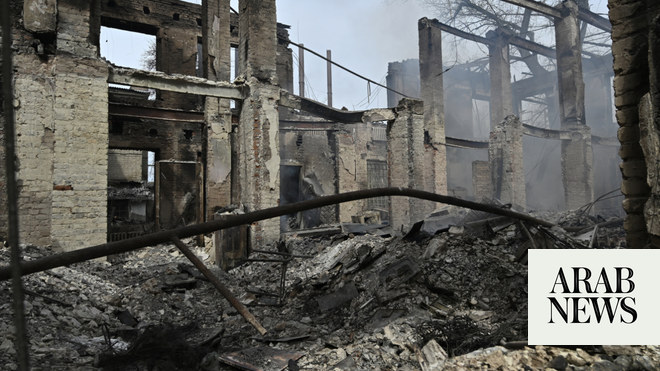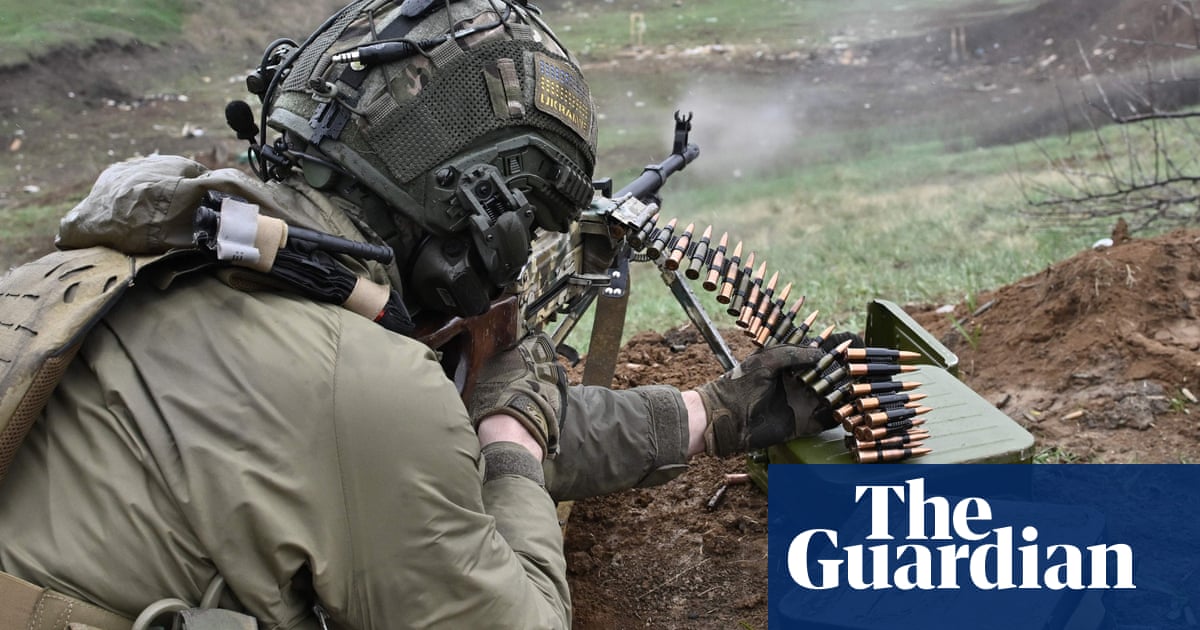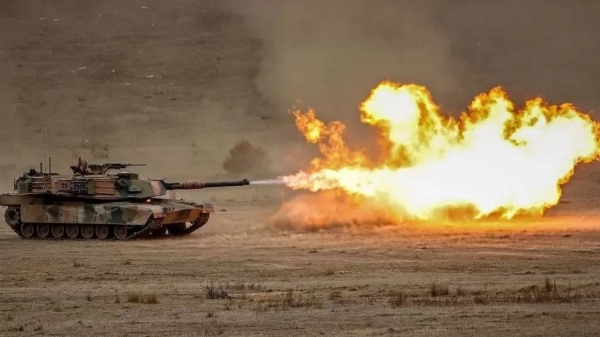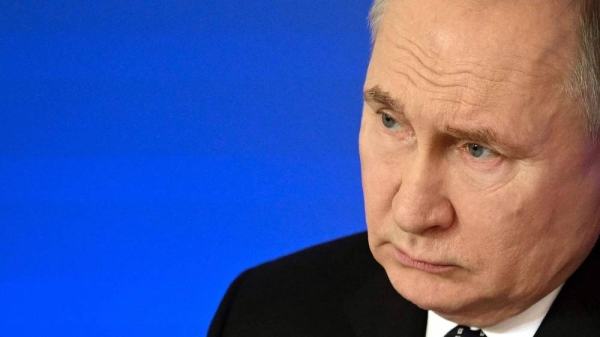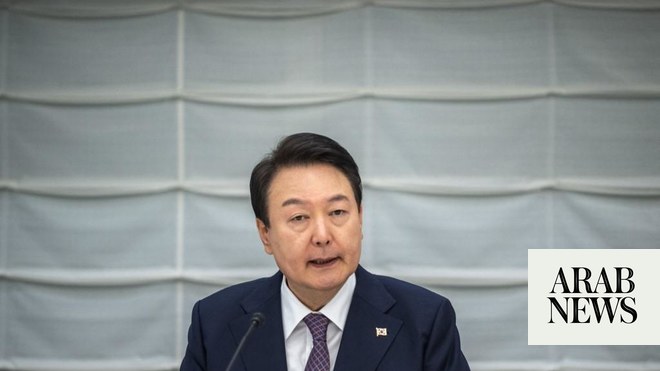
Serbia, one of the most pro-Russian countries in Europe, has pledged to send arms to Ukraine or has done so already, according to a leaked secret Pentagon document.
The document shows that the overwhelming majority of European states are providing arms or training to Ukraine, but other documents in a trove of leaked defence department classified material demonstrate that Kyiv is struggling to get supplies from much of the rest of the world and is facing critical shortages.
The leaks have created a rift in the US-Ukraine relationship as they reveal a lot about Ukrainian military deployments. They also make clear that US intelligence was pessimistic about Kyiv’s chances of recapturing significant amounts of territory in its expected spring offensive.
One of the documents seen by the Guardian is a roundup of European positions on providing arms and training from early March, titled “Response to Ongoing Russia-Ukraine Conflict”. It gives the “assessed position” of each country with a tick or a cross.
Serbia is assessed to have “provided or committed to provide lethal aid”. It is also reported to have the “military ability” and the “political will” to provide arms in the future.
The Serbian foreign ministry has yet to comment on the document, but the news will cause political controversy in a country with traditionally strong support for Russia, which consistently supported Belgrade in the Balkan wars of the 1990s. In a poll last year, 66% of Serbs said they believed Russia to be their country’s “greatest friend”, making Serbia a global outlier in that regard.
Serbia is also the only European country to have opposed all sanctions against Russia. The president, Aleksandar Vučić, has sought to maintain ties with Moscow and Beijing while seeking not to alienate the US and EU entirely. His government has voted against Russia several times at the UN general assembly over its invasion of Ukraine.
The Pentagon document about European contributions is marked “Secret/Noforn”, which means it is not to be shown to any foreign nationals, including allies. It shows that only two countries – Austria and Malta – have refused to provide lethal aid or military training, in the past or future.
Vienna has insisted on maintaining its policy of military neutrality, although the position is increasingly controversial inside Austria as the war continues. Malta has also pointed to its traditional neutrality and, like Austria, has provided humanitarian aid.
Hungary, consistently the most pro-Russian EU member state, has provided training to Ukrainian army medics, and the document notes it has the “military ability to provide future lethal aid”.
It has not been possible to independently verify the authenticity of the documents, but US officials have so far pointed to only one document reposted on the Telegram messaging app, involving casualty figures, as being a clear forgery. The justice department is conducting an investigation to find the leaker, who appears to have first posted secret Pentagon documents last year on a server used by about 20 people involved in military gear and video games.
Russia has so far offered a muted response. The deputy foreign minister, Sergei Ryabkov, suggested on Wednesday that the leak might be US disinformation ploy. “Since the US is a party to the conflict and is essentially waging a hybrid war against us, it is possible that such techniques are being used to deceive their opponent, the Russian Federation,” Ryabkov told Russian news agencies.
The Ukrainian government is assessing the possible damage from the disclosures. The files give details of 12 newly formed brigades, equipped with western battle tanks and armoured vehicles, which are likely to lead the assault against dug-in Russian positions.
“For sure, people are not happy,” one official admitted on Wednesday. “Ukraine was criticised last year for not being a trustworthy partner. At the beginning of the invasion, we weren’t provided with weapons because of this lack of trust. We lost a lot of territory and people as a result. This perception was wrong. And now this leakage happens from the US side.”
It was too early to say whether the leak would affect planning for Ukraine’s counter-offensive, now at an advanced stage, the official indicated. The attack is widely expected to take place in the south of the country, and possibly in the east as well. Ukraine’s goal is to break the land corridor connecting Crimea with Donetsk province and to evict the Russians from the occupied city of Melitopol and the port of Berdiansk.
According to Ukrainian sources, western weapons including Challenger 2 tanks from the UK have not been sent to existing brigades fighting in Bakhmut, in the east of the country, where both sides have taken heavy casualties. Ukraine’s 79th brigade is equipped with US-supplied M777 howitzers and otherwise relies on Soviet-era guns. The 93rd brigade has Norwegian artillery vehicles but no new equipment, commanders say.
Instead, western battle tanks have been distributed among newly formed brigades not currently involved in fighting – a tactic the official compared to “saving up a lot of gifts for Easter”. The person added: “The Ukrainian army plays with different scenarios. They don’t just have one. It’s not the case that if you don’t go down one road, the attack collapses. There are many options.”
No counter-offensive is likely to start until the weather dries out, which is unlikely to happen for at least 10 days. On Wednesday it rained all day in Kyiv and other Ukrainian cities.
The leaked Pentagon documents show that despite near complete European solidarity, some of Washington’s closest allies have balked at providing arms to Ukraine. South Korea’s national security office is shown to have pointed to the possibility that ammunition the country sold to the US might end up in Ukrainian hands, violating its law governing arms supplies to areas of conflict.
Another document details US thinking on ways to persuade Israel to provide weaponry to Kyiv, suggesting it might abandon its block on such supplies under certain scenarios. One option, defence officials suggested, was the “Turkish model”, by which weapons are sent through third-party entities. Israel might do that under US pressure, the document said.




